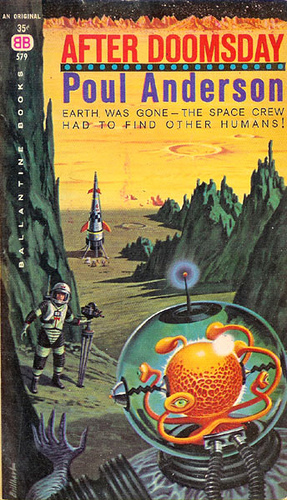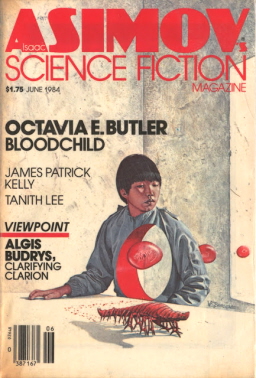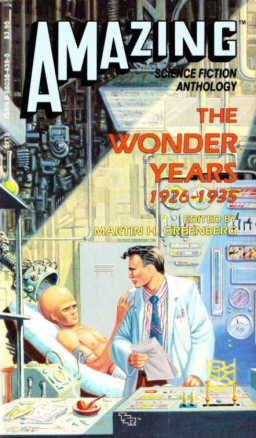Cerebus
 I’ve been writing a fair bit lately about Canadian fantastika, and I’ll be doing so again next week, looking at a trio of grand masters who’ve just released what may be one of the most accomplished works of their career. But there’s been a bit of news lately about another notorious Canadian fantasy epic, so I want to talk about that first.
I’ve been writing a fair bit lately about Canadian fantastika, and I’ll be doing so again next week, looking at a trio of grand masters who’ve just released what may be one of the most accomplished works of their career. But there’s been a bit of news lately about another notorious Canadian fantasy epic, so I want to talk about that first.
Late in May, Dave Sim began a Kickstarter project, trying to raise $6,000 to create a digital version of the 25-issue “High Society” storyline from his comic book Cerebus. He raised the money in a matter of hours. Each comic issue will be digitised; the story, the letter columns, and the editorials will all be scanned (I don’t know whether the work by other cartoonists that Sim used to run in the back of the book will be included). Sim will also read the text of the comic, performing dialogue and captions, and he’ll provide commentary, as well as show and discuss sketches, notebook entries, and the like. The extra money the Kickstarter will raise from this point will go towards higher-quality audio production, and, if funds allow, towards the digitising of the entire 300-issue run of Cerebus. As of June 13, Sim’s raised just shy of $40,000, with the Kickstarter still running for the rest of June.
In light of the Kickstarter success, I want to give a brief introduction to the series for non-comics readers. There’s no doubt that Cerebus was and is a major work, tremendously significant in the history of comics and in the medium’s development. And it’s relevant, I think, as a fantasy story; as a story that sometimes struggles with its use of fantasy, and as a story that works with and often against action-adventure tropes. But while parts of the work are startlingly effective, parts of it are equally-startling misfires. And the main theme of the book, reflecting Sim’s stated beliefs, is undoubtedly sexist (per Merriam-Webster, sexism is “prejudice or discrimination based on sex; especially : discrimination against women”) and in the opinion of many readers misogynistic. Sim disputes the term misogyny, arguing that he’s merely not “feminist,” but when he writes that a sensibility based on “reasoned and coherent world views … occurs more often — far more often — in men than it does in women,” it’s hard to see the difference between that and misogyny. Note that the foregoing statement isn’t an external statement that happens to shed light on Sim’s ideology; it’s a part of the text of Cerebus. Sim’s attitudes to gender and sexuality can’t be evaded in discussing the book. Still, I want to try to present here an overview of what makes the book important, with all its flaws.

 The Infernals
The Infernals
 It’s nothing new: taking old mythic tropes and adapting them to modern-age stories. The social commentary thinly-veiled as mysticism, the peek-a-boo mythology references, the obligatory explanation for why most people in our modern times don’t notice magic, the unassuming youth who will one day become a great hero … we’ve all read them. he secret is in the execution. How well is this ancient story re-told? How compelling are the characters? Are the truths revealed deep or trite?
It’s nothing new: taking old mythic tropes and adapting them to modern-age stories. The social commentary thinly-veiled as mysticism, the peek-a-boo mythology references, the obligatory explanation for why most people in our modern times don’t notice magic, the unassuming youth who will one day become a great hero … we’ve all read them. he secret is in the execution. How well is this ancient story re-told? How compelling are the characters? Are the truths revealed deep or trite?


 Ganymede
Ganymede 